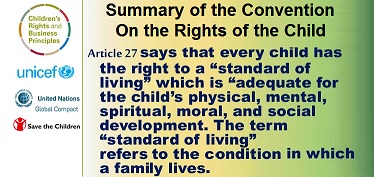
What is Child Support?
Child support is a fixed amount of money determined by the Court which one or both parents pay to ensure that they provide for reasonable and necessary support to meet the child’s physical, mental, and emotional needs. Only a Judge’s order can change it. In Illinois, a child support order is a Uniform Order for Support.
How much Child Support will I have to pay?
There is no easy answer to this.
- The first part of the calculation is determining what the net income of each parent is.
- Secondly they figure out what the combined net income is.
- The third step is to look up what percentage of combined net income that parents living in an intact household (with the same net income) would provide for the support of their child.
- Lastly, they consider things such as
- Does the child have special needs that would require extra support?
- Do either of the parents have other children they support financially?
- Is Maintenance (Alimony) being paid to one of the parents?
- Does disability or unemployment affect one or both parents?
- Is one parent incarcerated or institutionalized?
- How much Parenting Time does each parent receive?
- Are there extraordinary medical expenses that were required to save the life and health of a child of either party?
- Is health insurance being provided for the child?
The Illinois Department of Healthcare and Family Services provides this information on Child Support Guidelines–Income Shares. They have a link to an Estimator that might be helpful. Another explanation of calculating Child Support is found on this Illinois Legal Aid site.
Rather than speculate on how much you might need to pay, contact us at (312) 558-9100 today so we can advise you regarding your situation.

If I lose my job or quit and can’t make Child Support payments any more, what happens?

If you lose your job, you should immediately notify the Court so that an order can be entered reducing the amount of child support you owe. You must notify the Court, or the current amount of child support owed remains in force. It does not decrease automatically if you become unemployed.
How much will I owe if I am behind on my Child Support?
Missed Child Support payments are rarely forgotten, You will need to explain to the Court why you are not making the payments but it better be a good explanation. Not appearing in Court is not a good solution–see below. Interest on your debt may increase the amount you owe. If the other side had to take you to court to resolve the issue, you may need to pay for the other side’s attorney’s fees and court costs. The Court might even order Parenting Time to be suspended.
What if my ex-partner is not paying Child Support?
If a Judge has ordered that your ex-partner pay Child Support and they do not, your attorney should notify the Court of their failure. Your ex-partner will then have to appear before a Judge to explain why they are not making the payments that the Court ordered. Being a no-show for the Court hearing is not a good idea–they may found guilty of Contempt of Court. Penalties for that may include jail time, community service hours, or suspension of their driving privileges,
Why do I have to pay Child Support when I hardly ever see my children?
In Illinois, parents have a duty to financially support their minor children. Only the Court is allowed to determine the amount of Child Support. If you are current with your payments and the other parent is not allowing you your Parenting Time, talk to your attorney so they can report it to the Court. Your Parenting Plan may need to be changed if there were limitations on your Parenting Time that are no longer appropriate.
Contact us at (312) 558-9100 to see what can be done.

Do I still have to pay Child Support when the children are now spending most of their time with me?
If there is a major change in living arrangements, your attorney should ask the Court to adjust the Child Support payments.
DCFS has my child–do I still need to pay Child Support?
Even if the Department of Children and Family Services (DCFS) has your child, you must notify the Court of the new developments and ask that your child support payments be modified. Payments do not automatically stop–the Court must order the changes.
